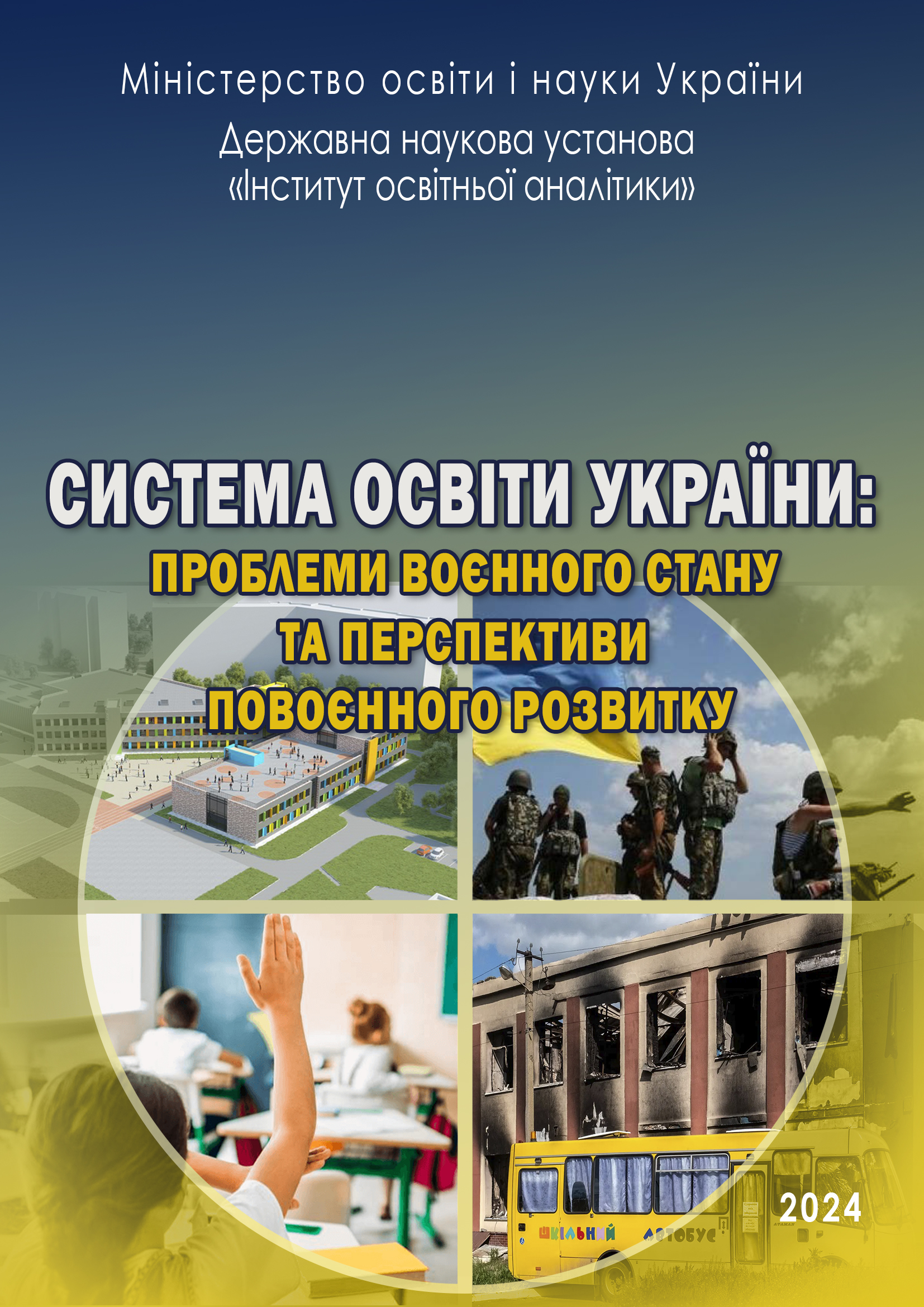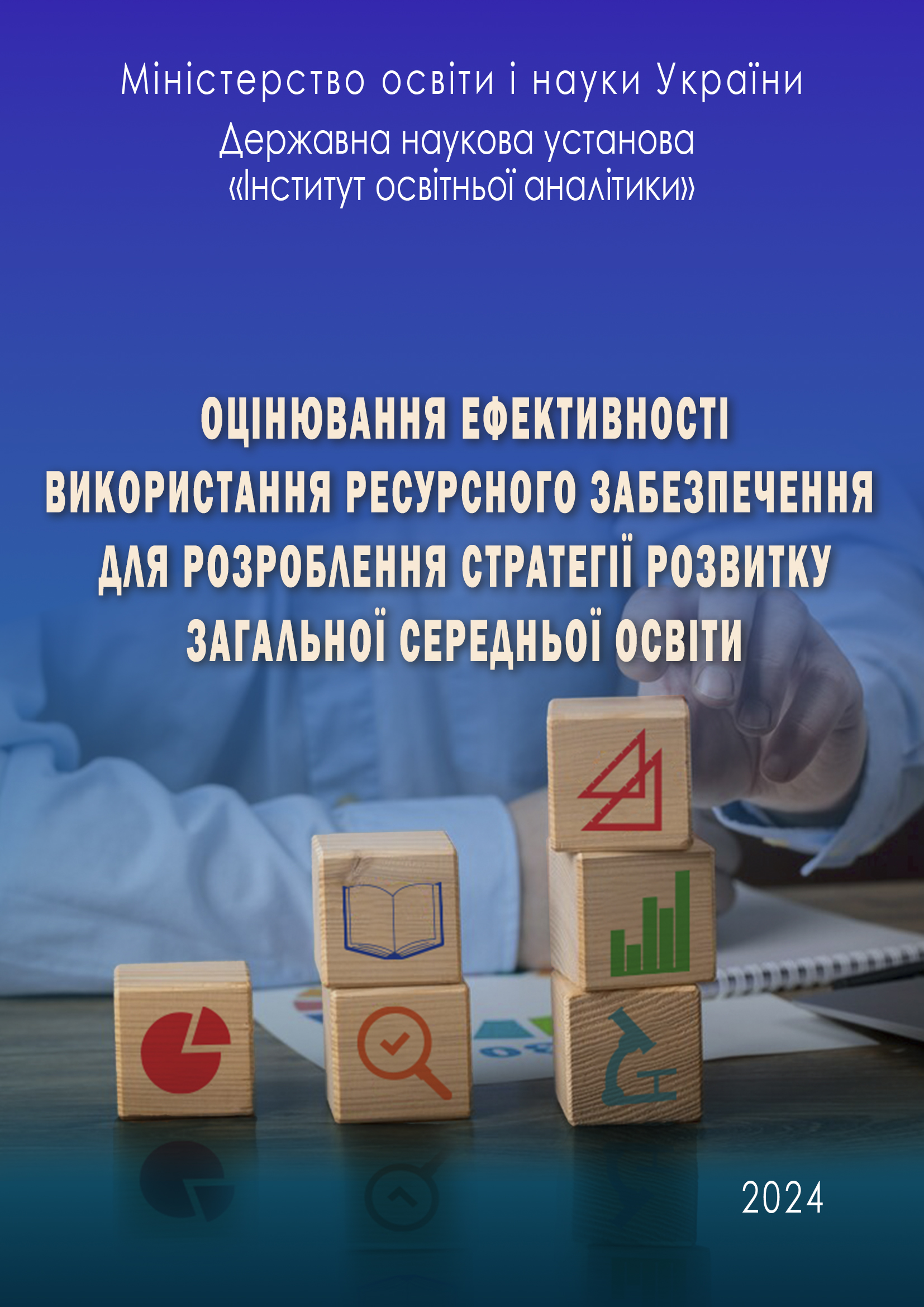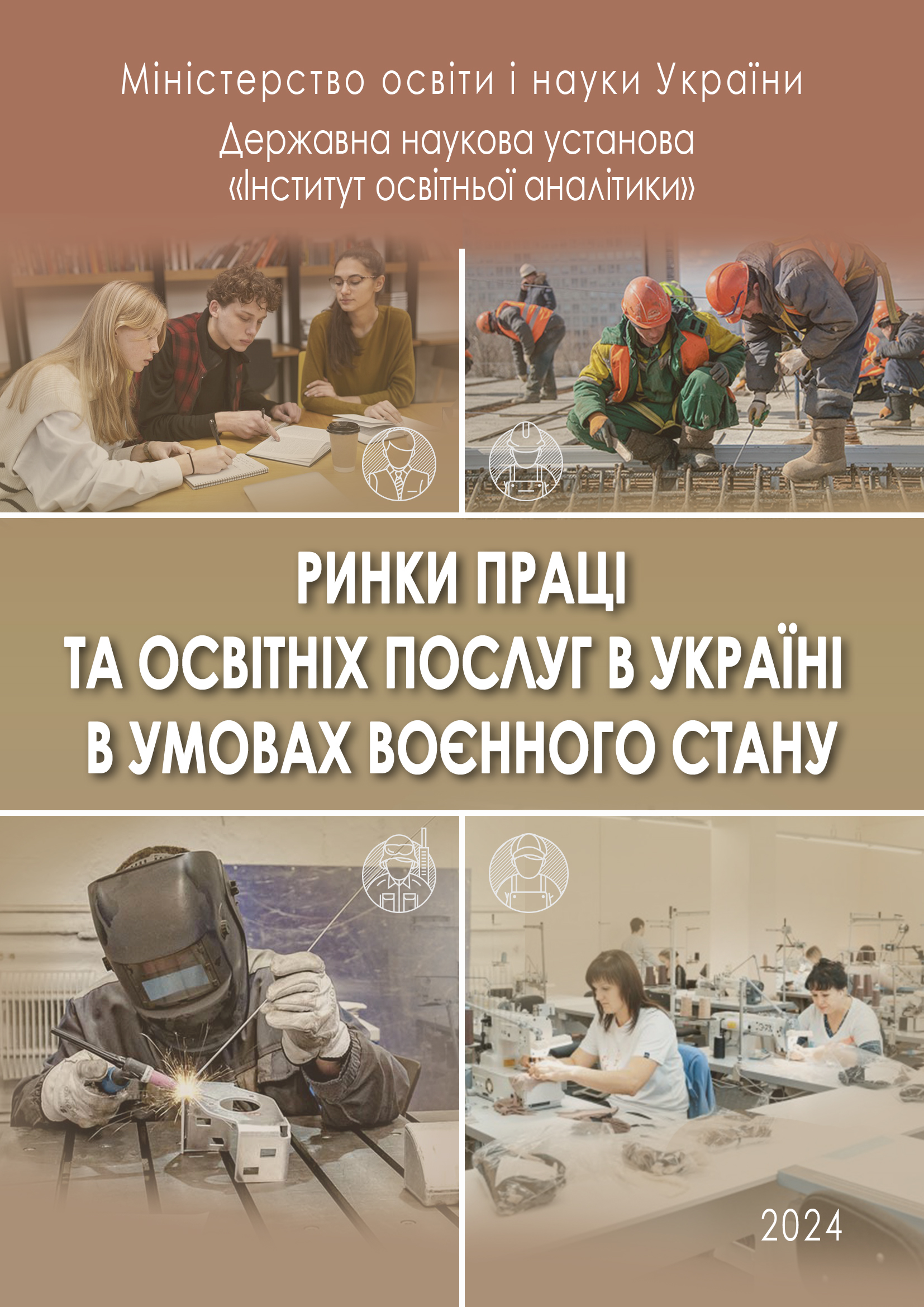| Monograph
The Education System of Ukraine: Challenges of Martial Law and Prospects for Post-War Development This monograph is a scholarly study exploring the challenges Ukraine’s education system has faced as a result of russia’s large-scale armed aggression. The authors analyse the functioning of preschool, general secondary, vocational and higher education institutions. The publication also highlights the financial aspects of organising the educational process and examines the role of digitalisation, as well as the use of information systems and technologies, in the context of martial law being introduced in 2022. Noteworthy issues raised by the authors include improving the regulatory and legal framework to enable educational institutions to respond flexibly to change and ensure educational continuity in emergency conditions, key aspects of implementing the “New Ukrainian School” concept, financing education in Ukraine to drive human capital development under martial law and during the country’s post-war recovery, and implementing STEM and STEAM education principles to advance technical and scientific knowledge and integrate creative thinking, essential for preparing future creative industry professionals. This scientific publication is intended for educators, scientists, civil servants, local government representatives, young researchers and representatives of public and international organisations. It is also aimed at a wide range of readers interested in issues related to the provision of education and the development of Ukraine’s education system during and after the war.
|
|
|
Monograph The monograph is devoted to identifying effective approaches to the use of resource provision, focusing on financial, human and material-technical resources. The authors examine topical issues such as developing analytical tools to process and analyse the efficiency of resource provision in general secondary education, creating and applying indicators aligned with the Sustainable Development Goals (SDGs), collecting and analysing statistical data to calculate SDG achievement indicators based on the performance of the general secondary education system, developing information and methodological support to calculate these indicators and conduct comparative analyses at the regional level, and assessing the accessibility of general secondary education institutions for learners with special educational needs. The scientific publication is addressed to a broad audience, including professionals working in the fields of education, educational statistics and analytics, educational policy and management within the context of the information society and knowledge economy, as well as to civil servants, representatives of local self-government bodies and researchers.
|
|
|
|
Monograph Labour Markets and Educational Services in Ukraine under Martial Law The monograph was prepared as part of the implementation of the international project “Horizon Europe” (project number 101132435, topic: HORIZON-CL2-2023-TRANSFORMATIONS-01-03, “Skills Partnership for Sustainable and Fair Migration”. It presents the outcomes of Work Package 3, which aimed to identify key challenges and trends in employment and educational services under martial law. Conducted by specialists from the State Scientific Institution “Institute of Educational Analytics”, the study makes a significant contribution to the development of evidence-based policies in the fields of labour, education, and migration in Ukraine and EU countries. The research focuses on analysing the national labour market by assessing the correspondence between the demand for and supply of skilled labour in Ukraine, compared to destination countries and countries with economies in transition. Particular attention is paid to adapting the vocational education system to the conditions of migration caused by the war, as well as to developing recommendations for integrating Ukrainian specialists into international labour markets. The authors have conducted a comprehensive analysis of the current state of Ukraine’s national labour market and educational services under martial law. The first part of the study looks at how the qualifications system has developed, labour migration trends and demographic changes, and the impact of these factors on employment and vocational training. It focuses on the issues of matching the demand and supply of skilled labour, as well as the challenges of overqualification and the underutilisation of specialist skills. The issues of digitalisation and online learning in the context of the pandemic and war are addressed separately. Empirical research, in the form of sociological surveys and interviews with key stakeholders such as employers, educational service providers, and policy makers responsible for employment, education, and qualifications, is given an important place. Based on the obtained data, conclusions and practical recommendations have been formulated regarding the adaptation of the national labour market and education system to current challenges. The scientific publication is intended for education sector employees, academics, young researchers, representatives of public and international organisations, as well as a wide readership interested in matters relating to the provision of education and the development of Ukraine’s education system during the war. |



